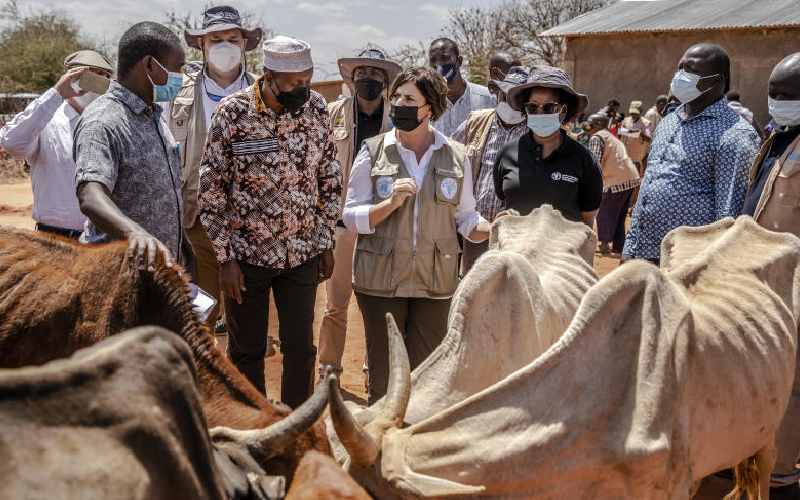×
The Standard e-Paper
Kenya’s Boldest Voice

FAO Deputy Director-General Beth Bechdol together with colleagues and locals in Moyale, where she visited to assess the drought situation in Kenya. [Standard]
Images of carcasses and starving animals in Kenya’s Marsabit are traumatizing. The stench of death is choking.